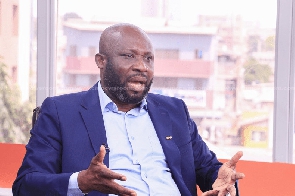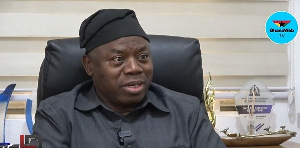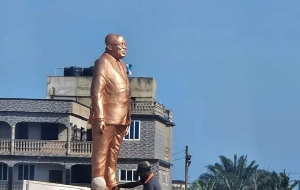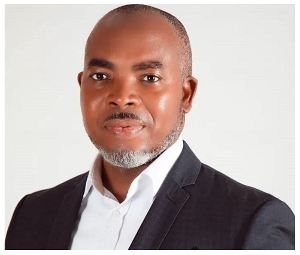Renowned professor of law, H. Kwasi Prempeh, has said the conflicting comments emerging from different Ghanaian government officials concerning the transfer of two former Guantanamo Bay detainees to Ghana, indicates that President John Mahama took the decision "secretively" and "unilaterally".
Prof Prempeh’s deduction follows revelations by Foreign Affair and Interior Ministers, Hanna Tetteh and Mark Woyongo, respectively, that they were not privy to discussions that led to the transfer of Mahmud Umar Muhammad Bin Atef and Khalid Muhammad Salih Al-Dhuby to Ghana for a two-year stay.
Ms. Tetteh told 3FM on Thursday January 14 that: "At the time the discussions were ongoing – especially because at that point in time it no longer was a foreign affairs discussion, it was a national security discussion – there were some of those discussions I was not privy to.”
On the same day, Minister for the Interior Mr Woyongo told journalists that: “I wasn’t privy to the discussions. ... They are supposed to comport themselves, not to do anything untoward and I am sure they will be briefed on what to do and what not to do,” he added.
Based on these comments by the government officials, especially after President John Mahama said there were “extensive” consultations – both externally and internally – regarding the transfer of the two to Ghana, Prof Prempeh has posited the following questions and comments on his Facebook wall:
So, if both the Foreign Minister and the Interior Minister claim they were not privy to the negotiations over the Gitmo detainees or to details of the terms of their resettlement in Ghana, then it is fair to say that the President regards this as neither a "foreign affairs" nor an "interior affairs" matter. What, then, does the President think it is? Well, he has made reference repeatedly to his "Commander-in-Chief" powers, meaning he sees this Gitmo detainees issue as falling within his powers in the area of war and national defence.
But if the two Gitmo Detainees pose "no risk" or threat to any interest within Ghana, as the President and his agents claim, why treat their resettlement in Ghana as a "war or defence matter", rather than as a routine interior/law enforcement matter?
Why, too, are the two being kept under 24/7 surveillance and monitoring, effectively continuing their detention, de facto, in Ghana? And if they pose no risk, why is the U.S. Government prohibited (under current U.S. law) from returning them to Yemen or Afghanistan or other hotbeds of terrorist activity?
The more the President invokes his Commander-in-Chief or "war and defense" powers in this context, the more he undermines his claim that his secretive, unilateral deal to resettle Gitmo detainees in Ghana poses no risk to the country's interests.
If they pose no risk, why restrict them to the "national security" compound? Why not leave them to live and move about freely within the general population? After all, if having them here is to offer them an opportunity, on compassionate or humanitarian grounds, to get their lives back together and have a fresh start, how are they going to be able to do that when they are kept under 24/7 national security surveillance and monitoring?
General News of Friday, 15 January 2016
Source: classfmonline.com

















